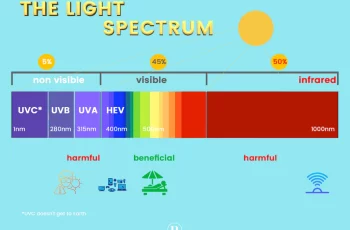
What Not to Take with Vitamin C?
You’ve undoubtedly heard of Vitamin C and know exactly why you should incorporate it into your skincare routine. However, there’s a lot of confusion about what exactly should not be mixed with Vitamin C. So stay tuned to learn more and don’t forget to follow us on Instagram if you have any questions.
What Not to Take with Vitamin C?
Vitamin C is known for being slightly unstable, and its acidic pH means it’s difficult to combine with other potent and active skin ingredients. Here are three key ingredients you should avoid when using Vitamin C.
Vitamin C and Retinol
One of the most potent ingredients in skincare, retinol is a highly effective anti-aging powerhouse with a variety of benefits. It boosts collagen production while increasing the rate at which skin cells renew themselves. This is too strong for many skin types, so introducing retinol into your routine should be done slowly to avoid severe irritation. If you choose to combine any form of retinoid with Vitamin C, you’ll find that it’s too harsh for your skin, regardless of your tolerance for retinol. To avoid this, apply vitamin C in your evening routine to protect your skin from UV rays and other free radical damage. You’ll find that retinol works best when used in the evening, as its effectiveness decreases with exposure to the sun.
Vitamin C and Niacinamide?
Niacinamide, also known as vitamin B3, is found in a number of different skincare products. With its moisturizing properties, it hydrates your complexion and regulates the skin’s sebum production. This is very special, ensuring that the niacinamide keeps your skin plump and improves any signs of breakouts and acne. The problem with niacinamide and vitamin C is that they both have similar benefits for the skin. Therefore, if used together, they affect each other and are therefore useless. If you want to use both in your daily routine, leave at least 10 minutes between applications or alternate between them for the best results.
Vitamin C and AHA/BHA
It’s best to avoid vitamin C and AHA/BHA (such as glycolic acid and salicylic acid) altogether. Since these acids act as chemical exfoliants, combining them with Vitamin C can be too much for your skin and cause severe irritation, reactions, and severe dryness. You also need to keep in mind that all of these ingredients have a low pH level that can cause a serious imbalance and render your skincare routine completely useless.
What can you take with Vitamin C?
Thanks to the powerful antioxidant properties of Vitamin C, your skin will be rejuvenated and repaired, your complexion will become more radiant, and signs of free radical damage will be significantly reduced. While Vitamin C alone can bring impressive results, there are some ingredients that combine perfectly with this powerful energy substance.
Best Ingredients to Mix with Vitamin C
Vitamin E
Ferulic Acid
Vitamin B
Hyaluronic Acid
To ensure that your skin stays healthy and happy, I recommend that you always consult a doctor or dermatologist to find the best combination of ingredients without having to worry about adverse reactions.
Can Vitamin C and Niacinamide be mixed?
No, it is considered best not to mix Vitamin C and Niacinamide because the individual ingredients will cancel each other out, rendering them completely useless. As I mentioned earlier in this blog post, you can use Niacinamide and Vitamin C in your daily routine. However, you must make sure to leave at least 10 to 15 minutes between applications. Another way to use these two ingredients is to alternate applying them to your skin at different times of the day or even on different days.
If you want to learn more about using Niacinamide and Vitamin C, you can read our dedicated blog post on The Beauty Insiders.
Can Vitamin C be used with Hyaluronic Acid?
Yes, you can! In fact, your skin will be very grateful. This is because Vitamin C is known to cause mild irritation and redness to the skin, especially for those who are dry and prone to sensitivity. Then apply a hydrating ingredient like Hyaluronic Acid, you can combat potential dryness and irritation by providing extra hydration. This will give you a plump, radiant, nourished complexion that is protected from free radical damage and looks youthful.
Does Vitamin C cancel out Retinol?
The short answer is yes, and the more detailed answer is highly related to the pH levels of different formulations of products containing Vitamin C and Retinol. You have to remember how powerful these two ingredients are, and where potency is high, there tends to be instability. Due to the low pH of both, when mixed or used on top of each other, they can cause negative reactions that can lead to dry skin, irritation, redness, and itching.
To avoid these issues and unwanted side effects, I recommend using a vitamin C serum at the end of your morning routine before following up with a daily sunscreen with SPF 30 or higher. You can then follow up with a retinol-rich product in the evening.
Which comes first, vitamin C or hyaluronic acid?
If you are using vitamin C and hyaluronic acid in separate products, I recommend starting with the vitamin C. This is because serum formulas with vitamin C have a thinner, lighter consistency compared to hyaluronic acid. The general rule of thumb when doing your skincare routine is to start with the thinnest and end with the thickest. When you use a hyaluronic acid-rich serum after a vitamin C product, you strengthen the skin barrier and lock in moisture on the outer surface, leaving the skin plump, hydrated, and at its healthiest.
Does vitamin C clog pores?
Yes, you can, but only if you use an unstable form of vitamin C, as ascorbic acid (another name for vitamin C) can oxidize when exposed to light and air, leading to the formation of blackheads and worsening the appearance of your skin. To avoid this, just make sure you are using the best form of vitamin C, and if you have any questions, stop using the product and consult your doctor or dermatologist.
Here is some more information on what you shouldn’t mix vitamin C with. Hopefully, you now have a better idea of what to look out for, and can incorporate this impressive powerhouse into your daily routine.


